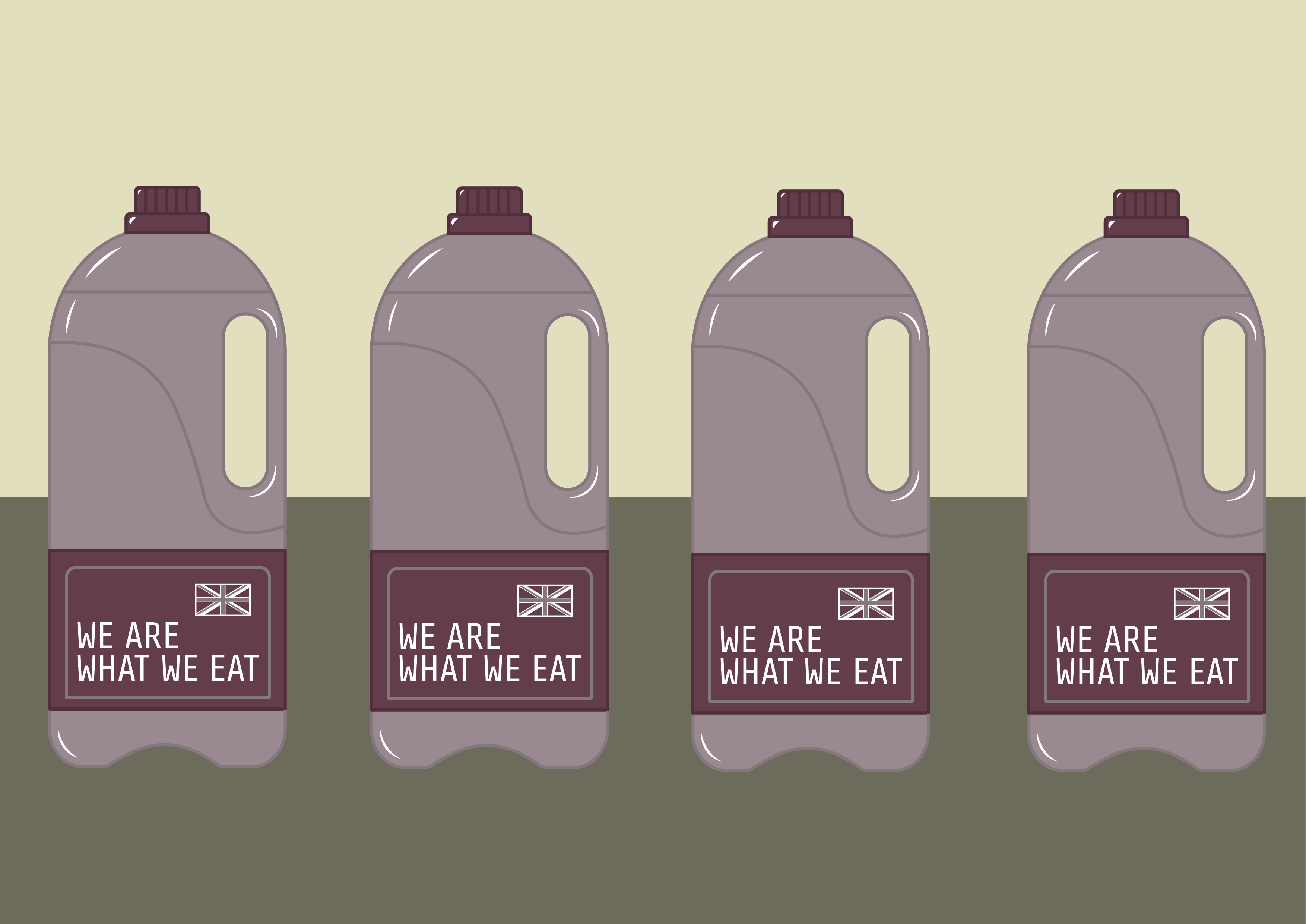[Written By: Elspeth Macintosh]
[Illustration: Julia Rosner]
As many of us know, the European Union currently has lots of influence on the characteristics of the food that we import and export. But what we are less commonly aware of is that the upcoming Brexit will change British policy concerning the food products we consume in our daily lives. This article aims to summarise an issue that too many of us lack awareness of and capture a snapshot of Britain’s attitude towards food standards and trade in 2018.
Currently, 30% of our food is imported from the EU. An incredible 98% of imported dairy products are coming from the EU. It isn’t hard to understand why, when you look at the map. If the UK runs into complications making trade deals with the EU, it will be incredibly difficult to make up for that loss of trade by our own agricultural means, and the question of importing food from elsewhere is where the debate around food standards really picks up.
There have been some very controversial theories about how future trade deals could impact the food we buy, especially in respect to the USA, where food safety standards for meat and dairy are notably lower. These may not be things that are generally thought of when we go across the pond for a holiday, but imports of food from the USA to Europe are in fact limited by the European Food Safety Authority due to differences in their laws on food standards. People are worried about whether the UK will retain the food standards it accepted within the EU, or whether this ‘lesser quality’ food could leak into the British market.
Some examples of these lower standards include the use of chlorine to wash chickens, poorer quality milk (the health of which is measured by somatic cell count, an indicator of the likelihood of harmful bacteria being present), and cow meat pumped with hormones to make the animals grow bigger. The US government is also pushing to legalise an additive, ractopamine, to be used on pigs, that would make them leaner and less fatty, and more profitable. However, additives like these are sometimes questionable in terms of animal welfare – ractopamine, specifically, causes weakened limbs and shaking in pigs. Hopefully the government will have sense and stop these practices from being adopted here in Britain.
It may ease your mind after reading some of this that the environment secretary, Michael Gove, is adamant that accepting lower food standards is not something that will happen, and that the UK government will do all it can to be “leaders in environmental and animal welfare standards”. In the same interview with BBC’s Radio 4 Today, he stated: “we are not going to dilute our high animal welfare standards, or our high environmental standards, in pursuit of any trade deal.” However, whether or not Gove and the other politicians commenting on this matter can be trusted to stick by their promises is worrying environmentalists.
Brexit will see it necessary to alter many laws influencing food standards. According to the director of Food Drink Europe, Brexit will affect over 2,300 agriculture and food laws. This includes a lot of detailed legislation and updates that are made on the clock of dedicated committees meeting to discuss any issues surrounding food safety.
Tariffs on food trade with other countries will also be affected by whether the UK strikes up a trade deal with the EU. The chance to maintain the free trade agreement currently in place between the UK and the other EU countries seems an attractive prospect round about now. However, any remotely lucrative trade deal could be all too tempting if Brexit goes down the pan. And this may leave us with no choice but to compromise on Gove’s anti-dilution promise.
As of now, the UK’s food standards are good. The Food Sustainability Index (FSI) measures the sustainability of 34 different countries food systems, focusing on agriculture, nutrition, and food waste. It shows that in 2017, the UK had a high score for the quality of its animal welfare regulation, as well as for the favourable environmental impact of agriculture on land.
Let’s hope that, as a country, we can keep some of that going and continue to improve standards, rather than being forced to change track and scrap them for cheap food in a post-Brexit Britain.

